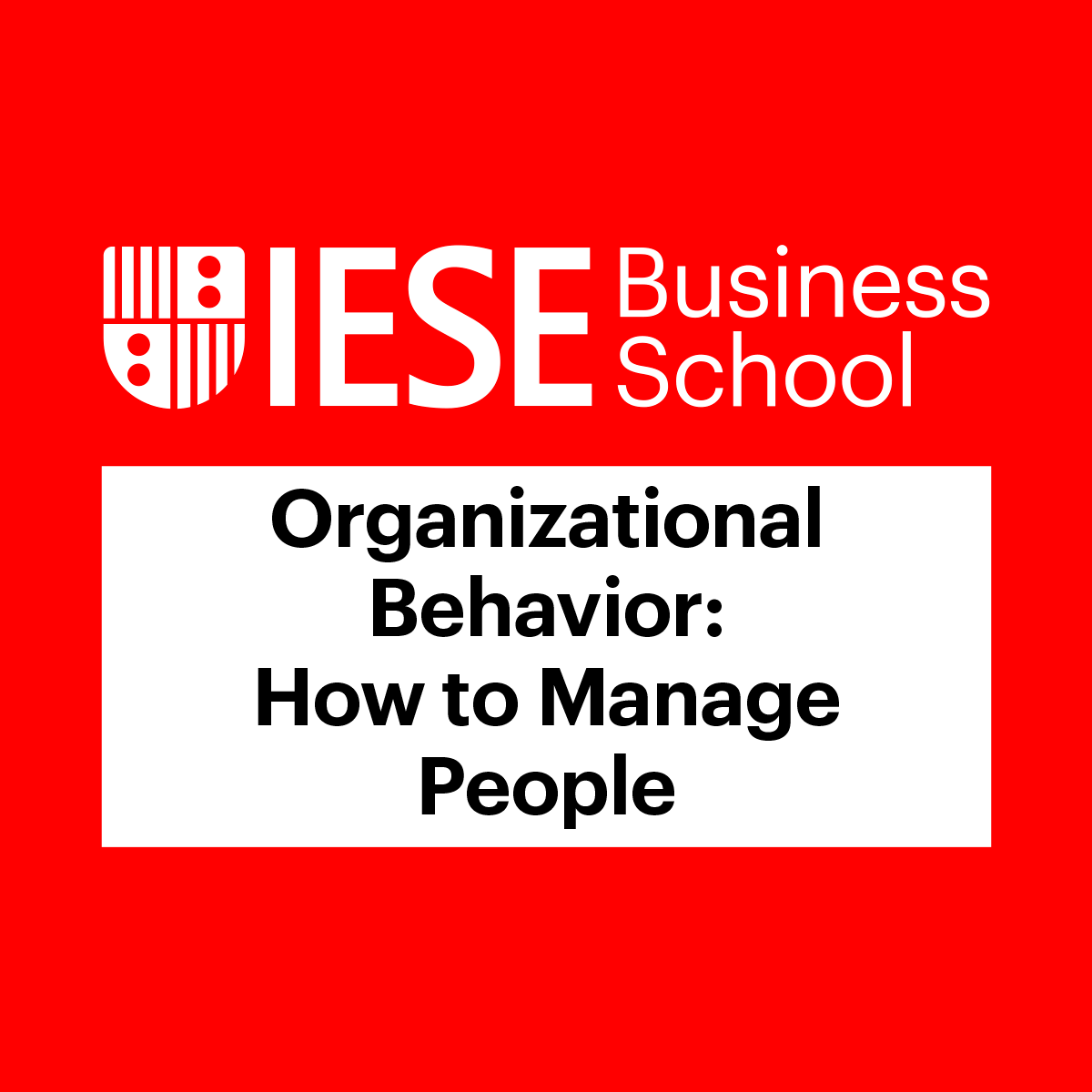Organizational Behavior: How to Manage People
Overview
Peter Drucker, a pioneer in the field of management, once said that people have a perverse tendency to behave like human beings. Of course, we are not machines, and certainly not programmable. But through the study of organizational behavior, we can gain insights into what makes people tick within a work context. Increasing your understanding of your own behavior and that of your colleagues, teams and leaders, is an important first step to bringing positive change to how you and your organization work. The objective of this course is therefore to provide insight into four key areas: • Motivation. In this course segment we will understand the concept of motivation and review various perspectives that will help you understand how we can motivate others. • Leadership. In this part of the course, we will analyze the concept of leadership and consider various perspectives and approaches to help shed light on leadership emergence and effectiveness. • Teamwork. Here we look at team functioning and effectiveness. Using the widely used input – process – output model of team effectiveness, we consider such topics as team diversity, team processes, and team outcomes. • Culture. Finally, we'll move to the level of the organization and consider the concept of organizational culture, also touching upon the concept of national culture. We look at the various ways in which culture is expressed, and discuss the implications of culture for people within organizations and cross-cultural collaborations.



